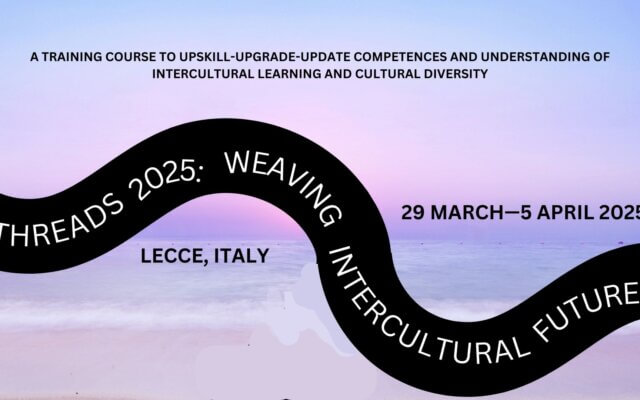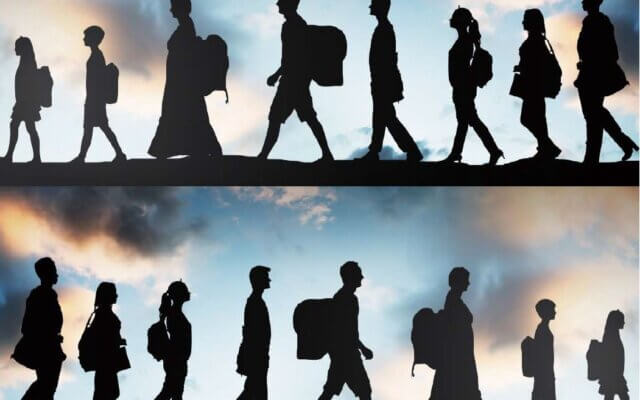Programme: Europe for Citizens, Strand 2 – Measure 2.2 ‘Networks of Towns’
Please also read the brief excerpt of the entire project
You can find information about the project at: https://www.antidotenetwork.net/
Hosting organisation: IRCP Budapest
Project info:
https://www.antidotenetwork.net/
Short description of the project results
The ANTIDOTE project has contributed to countering divisive narratives that polarize public opinion. Through an initial research phase aimed at examining political rhetoric that polarizes the masses by stigmatizing “others,” “migrants,” or “minorities,” the project drew attention to the intricate web of concepts that create confusion surrounding immigration and aim to divide public opinion. Following this research phase, the Antidote team gathered to study the research results and the content of events and activities that would later be implemented at the local level. These activities and events were conceived as tools to dismantle prevailing divisive discourses and narratives and replace them with alternative narratives rooted in tolerance and intercultural dialogue, with the primary goal of breaking down stereotypes and combating the stigmatization of “others.” Simultaneously, local Antidote campaigns were launched to raise public awareness about extremist and populist movements. The aim was to promote intercultural dialogue and mutual understanding. Participants in these campaigns, especially the involved youth workers, underwent a transnational training course conducted in Bucharest, Romania, led by professionals experienced in intercultural dialogue. The course honed their skills, equipping them with tools to craft alternative narratives suitable for specific cultural contexts and to promote intercultural dialogue by fostering debates within their respective communities. The project initiated a local campaign in the participating countries, where the youth workers, trained in the previous Bucharest training, could leverage their acquired skills. Their mission was to address the polarization of public opinion, promoting opportunities for social and intercultural engagement at the European Union level. Citizens involved in this phase were able to develop and disseminate alternative narratives, sparking debates, provoking reflections, and increasing awareness of cultural and linguistic diversity in Europe. This promoted mutual understanding and tolerance, contributing to the cultivation of a respectful, dynamic, and multifaceted European identity. Finally, educational tools were created to enhance the understanding of European Union citizens about its history and diversity, along with specific teaching resources like the Antidote manual aimed at understanding cultural differences and promoting successful integration by deconstructing past and present processes of stigmatization. In conclusion, during the final conference, the project’s highlights were presented, and the achieved results were showcased. The concluding meeting in Budapest also laid the groundwork for future efforts in combating stigmatization and promoting unity through intercultural dialogue.
Event 1
Participation: The event involved 76 citizens from 13 countries, including: 1 from the city Sarajevo (Bosnia &Herzegovina) BA, 53 from the city Lucca (Italy) IT, 1 from the city Budapest (Hungary) HU, 3 from the city Bucharest (Romania) RO,2 from the city Lezhe (Albania) AL, 1 from the city Pelplin (Poland) PL, 2 from the city Paredes (Portugal) PT, 4 from the city of Brussels (Belgium) BE, 2 from the city Pristina (Kosovo) XK, 1 from the city Strovolos (Cyprus) CY, 1 from the city Novo Mesto (Slovenia) SI, 2 from the city Rijeka (Croatia) HR, 3 from the city Breclav (Czech Republic) CZ
Location / Dates: The event took place in Capannori – Lucca (Italy), from 18/10/2021 to 21/10/2021
Short description: The 1st international meeting (kick-off meeting), dealing with the way Europe’s towns and regions could move towards more diverse, equal, and inclusive societies, has been hosted and organized in Italy. It was a significant event that drew participants from across the continent. Hosted and meticulously organized in Italy, this gathering marked the beginning of a collaborative journey aimed at addressing some of the pressing challenges Europe faces today. At the heart of these discussions was a vision of creating more diverse, equal, and inclusive societies and a more inclusive labor market for migrants, and concrete solutions for better cooperation at the local level tackling discrimination and promoting diversity at the workplace. The program included auxiliary and complementary activities, among which the meeting between the international participants with the ‘Terra di Tutti’ Association for Migrant Integration through Circular Economy and Creative Reuse, and with the ‘Agricola Carrara’ association for the Professional Integration of Refugees and Migrants.
Event 2
Participation:
The event involved 76 citizens from 14 countries, including: 2 from the city Sarajevo (Bosnia & Herzegovina) BA, 3 from the city Lucca (Italy) IT, 2 from the city Budapest (Hungary) HU, 52 from the city Bucharest (Romania) RO, 1 from the city Lezhe (Albania) AL, 1 from the city of Brussels (Belgium) BE, 2 from the city Demir Kapija (Republic of North Macedonia) MK, 2 from the city Pelplin (Poland) PL, 1 from the city Paredes (Portugal) PT, 2 from the city Pristina (Kosovo) XK, 2 from the city Strovolos (Cyprus) CY, 2 from the city Novo Mesto (Slovenia) SI, 1 from the city Rijeka (Croatia) HR, 3 from the city Breclav (Czech Republic) CZ
Location / Dates: The event took place in Bucharest (Romania), from 16/05/2022 to 19/05/2022.
Short description: The 2nd international meeting and the two days training course, the participants were engaged in group discussions and labs focusing on resilience-building, counter-narrative methods, and understanding various narrative types. Workshops emphasized the importance of creating a safe space for intercultural interaction. They explored tactics like humor and sarcasm to counter extremist narratives. Training sessions addressed the key components of effective facilitation for positive, strategic and alternative narratives but also ethical and counter narratives.
Event 3
Participation: The event involved 76 citizens from 14 countries, including: 1 from the city Sarajevo (Bosnia & Herzegovina) BA, 1 from the city Lucca (Italy) IT, 2 from the city Budapest (Hungary) HU, 2 from the city Bucharest (Romania) RO, 5 from the city Lezhe (Albania) AL, 3 from the city of Brussels (Belgium) BE, 1 from the city Wien (Austria) AT, 1 from the city Berlin (Germany) DE, 1 from the city Paredes (Portugal) PT, 53 from the city Pristina (Kosovo) XK,1 from the city Strovolos (Cyprus) CY, 1 from the city Novo Mesto (Slovenia) SI, 2 from the city Rijeka (Croatia) HR, 2 from the city Breclav (Czech Republic) CZ.
Location / Dates: The event took place in Pristina – (Kosovo), from 19/10/2022 to 22/10/2022
Short description: the 3rd international meeting in Pristina, Kosovo, was marked by discussions and conferences centered on the importance of intercultural dialogue for fostering respect and active citizenship, understanding EU migration processes, analyzing stigmatization and local polarization patterns, addressing xenophobia due to migration/refugees, and examining EU-level migration challenges with varying national outcomes. Moreover, the discussion addressed key solutions and the development of pilot projects aimed at overcoming stereotypes about immigrants.
Event 4
Participation: The event involved 77 citizens from 13 countries, including: 2 from the city Sarajevo (Bosnia & Herzegovina) BA, 4 from the city Lucca (Italy) IT, 1 from the city Budapest (Hungary) HU, 2 from the city Bucharest (Romania) RO, 1 from the city Demir Kapija (Republic of North Macedonia) MK, 4 from the city of Brussels (Belgium) BE, 53 from the city Pelplin (Poland) PL, 4 from the city Pristina (Kosovo) XK, 1 from the city Berlin (Germany) DE 1 from the city Strovolos (Cyprus) CY, 1 from the city Novo Mesto (Slovenia) SI, 1 from the city Rijeka (Croatia) HR, 2 from the city Breclav (Czech Republic) CZ
Location / Dates: The event took place in Gdansk (Poland), from 22/05/2023 to 25/05/2023.
Short description: the 4th international meeting project held in Gdańsk, May 2023, focused on social Innovation for refugee inclusion and the role of community-based organization in building inter-cultural dialogue. Labs for designing the training manual were implemented. Secondary activities included visiting the WWII Museum and the Solidarity Center. The participants also had a discussion with former Polish President Lech Wałęsa about his contributions to peace and democracy.
Event 5
Participation: The event involved 89 citizens from 13 countries, including: 3 from the city Sarajevo (Bosnia & Herzegovina) BA, 2 from Lucca (Italy) IT, 62 from the city Budapest (Hungary) HU, 1 from Bucharest (Romania) RO, 3 from the city Lezhe (Albania) AL, 3 from the city of Brussels (Belgium) BE, 1 from the city Demir Kapija (Republic of North Macedonia) MK, 2 from the city Pelplin (Poland) PL, 1 from the city Strovolos (Cyprus) CY, 4 from the city Pristina (Kosovo) XK, 2 from the city Novo Mesto (Slovenia) SI, 1 from the city Rijeka (Croatia) HR 4 from the city Breclav (Czech Republic) CZ
Location / Dates: The event took place in Budapest (Hungary), from 17/07/2023 to 20/07/2023.
Short description: The 5th International Project Meeting was held in Budapest, Hungary, attracting a diverse group of attendees from various European countries. The gathering served as a platform for robust discussions and collaborative brainstorming sessions. One of the standout sessions focused on “Reactivating European Urban Citizenship: A Network of Inclusive Towns.” This topic delved into the ways European cities can rekindle a sense of belonging among their residents. Presenters shared case studies of towns that have successfully fostered inclusivity, with initiatives aimed at bridging gaps between long-term residents and newcomers. The manual for training activities for social-youth operators to build a counter-narrative on the migration phenomenon has been presented. As a peripheral activity, a visit among international participants and the ‘Menedék’ Association for the Integration of Migrant Children was planned.



